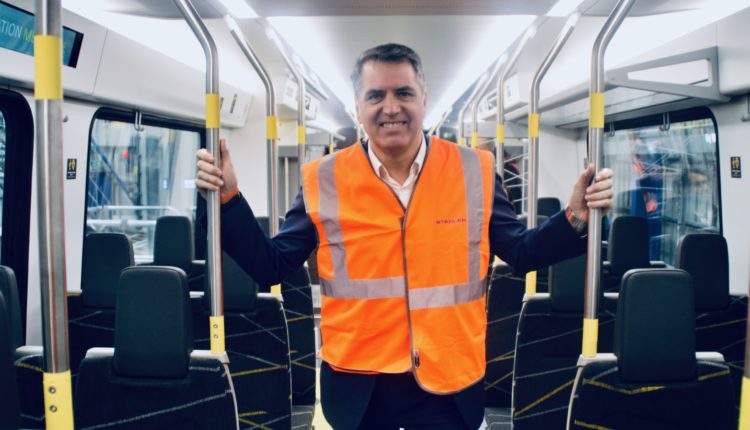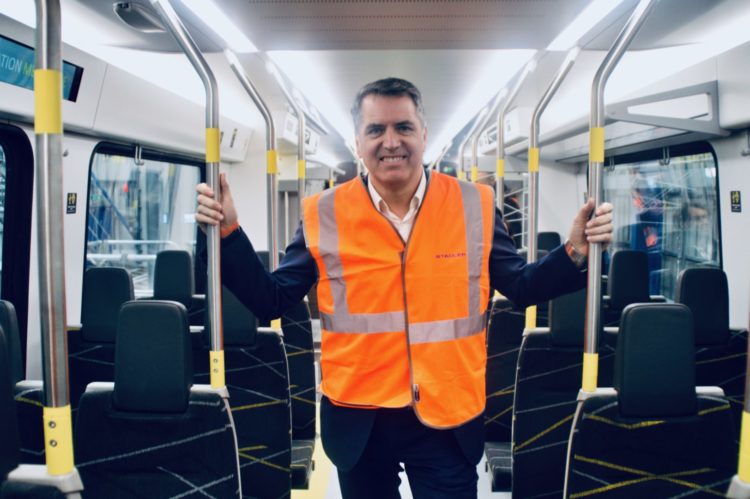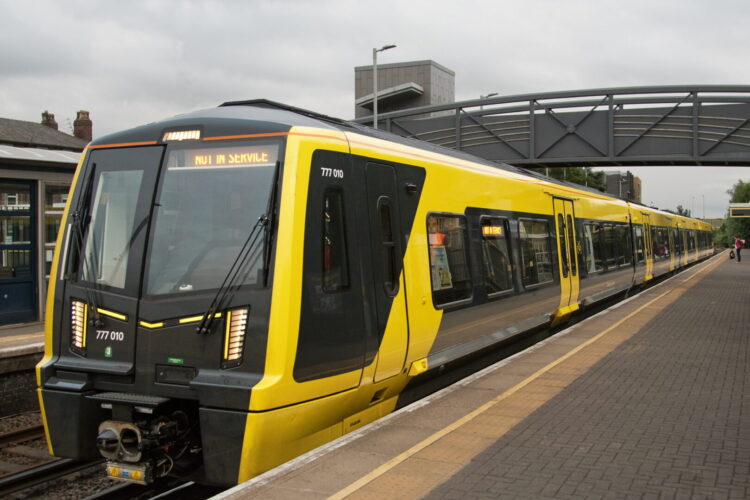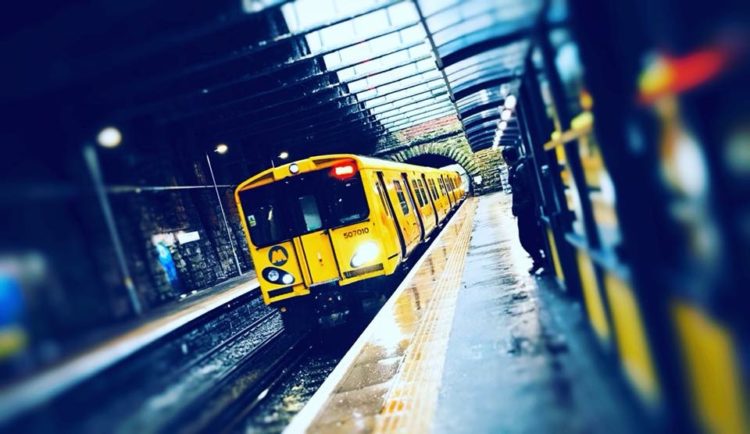
Metro Mayor of Liverpool city region Steve Rotheram has struck an agreement on a memorandum of understanding with the Department for Transport to take full control of the Merseyrail network. Tony McDonough reports

Metro Mayor Steve Rotheram has struck an “agreement in principle” on a a memorandum of understanding with the Department for Transport (DoT) to take full control of the Merseyrail network.
In a significant expansion of the city region’s devolution deal, the Combined Authority (CA) would take over control of the network from Network Rail. This would include all the track, signalling and stations.
It would also give Mr Rotheram and the CA control over significant areas of land. This would offer huge potential for new regeneration projects. These could include new commercial developments and an acceleration of the CA’s housebuilding ambitions.
LBN reported in August 2021 that Mr Rotheram was in discussions with the DoT over the move. Now the details of the transfer have been agreed in principle. However, the Conservative leadership contest could delay the final sign-off.
Secretary of State for Transport Grant Shapps is reluctant to sign-off on the MOU until the leadership contest is settled, LBN understands. Conservative party members are to vote to put either Rishi Sunak and Liz Truss into Downing Street.
The new PM will not be in office until early September. However, it is believed Mr Rotheram may have further discussions with Mr Shapps in an attempt to persuade him to give the green light.
If the deal is finally given the nod it still would not give Mr Rotheram day-to-day operational control of Merseyrail services. That will remain the responsibility of current franchise holder Merseyrail Electrics. Its 25-year agreement expires in 2028.
As part of his manifesto commitment, Mr Rotheram will explore options for the running of the network post-2028. That could include a publicly-owned operator. It is hoped a decision will be made before the end of the Mayor’s current term in 2024.
Later this year the first of a new 52-strong fleet of trains will begin carrying passengers on the network. The CA has paid £500m for the trains, made by Swiss manufacturer Stadler. The new 777-class units will replace the current leased fleet which has been in service for more than 40 years.
Carrying more than 100,000 passengers on an average weekday, and 34m people a year, Merseyrail operates on 75 miles of track with 72 stations. Six of its stations and 6.5 miles of track are underground. Work has already started on the new £80m Headbolt Lane station at Kirkby.
Testing of the new trains included a successful pilot to operate them by battery. This offers the potential to extend the network without the need for expensive electrification. Services to places such as Skelmersdale, Wrexham, Warrington, Runcorn and North Wales are now within reach.
Taking control of the Merseyrail network is part of Mr Rotheram’s wider ambition to create a fully-integrated London-style public transport system in the city region. He is also pushing the Government to reverse the 1980s deregulation of the bus network.


In March the CA voted in favour of moving to a franchising model for buses. Mr Rotheram says this would allow passengers to enjoy cheaper, quicker and more reliable services. It would offer a network designed around the needs of local people.
Speaking after that vote, he said: “Good public transport is the hallmark of any modern, successful city region and buses are its backbone.
“Hundreds of thousands of people rely on our region’s buses every single day. They are a lifeline for connecting people in our communities with each other and opportunity.
“But too many feel left behind by a system that simply does not work for them. In too many places, public transport is too confusing, too unreliable, and too expensive.
“I want to make travelling round our region cheaper, quicker, greener and more reliable – and to simplify ticketing under a tap-and-go system that means you’ll always pay the cheapest fare. Our region should not have to settle for a second-class service.”
